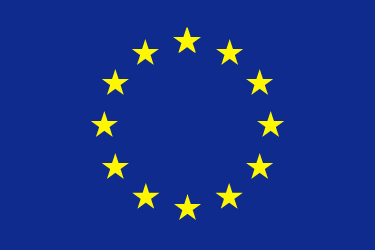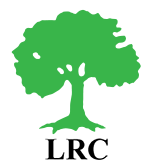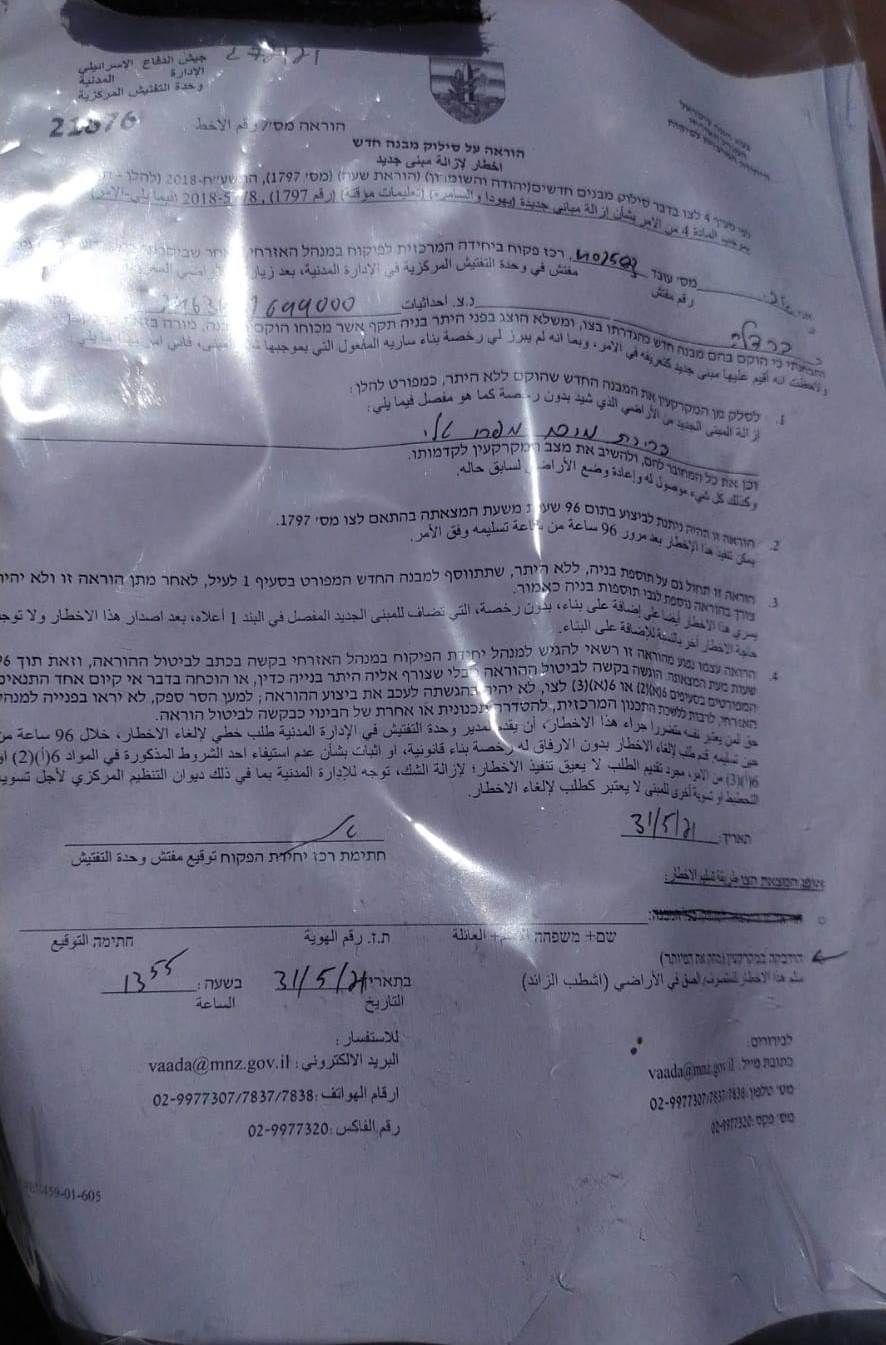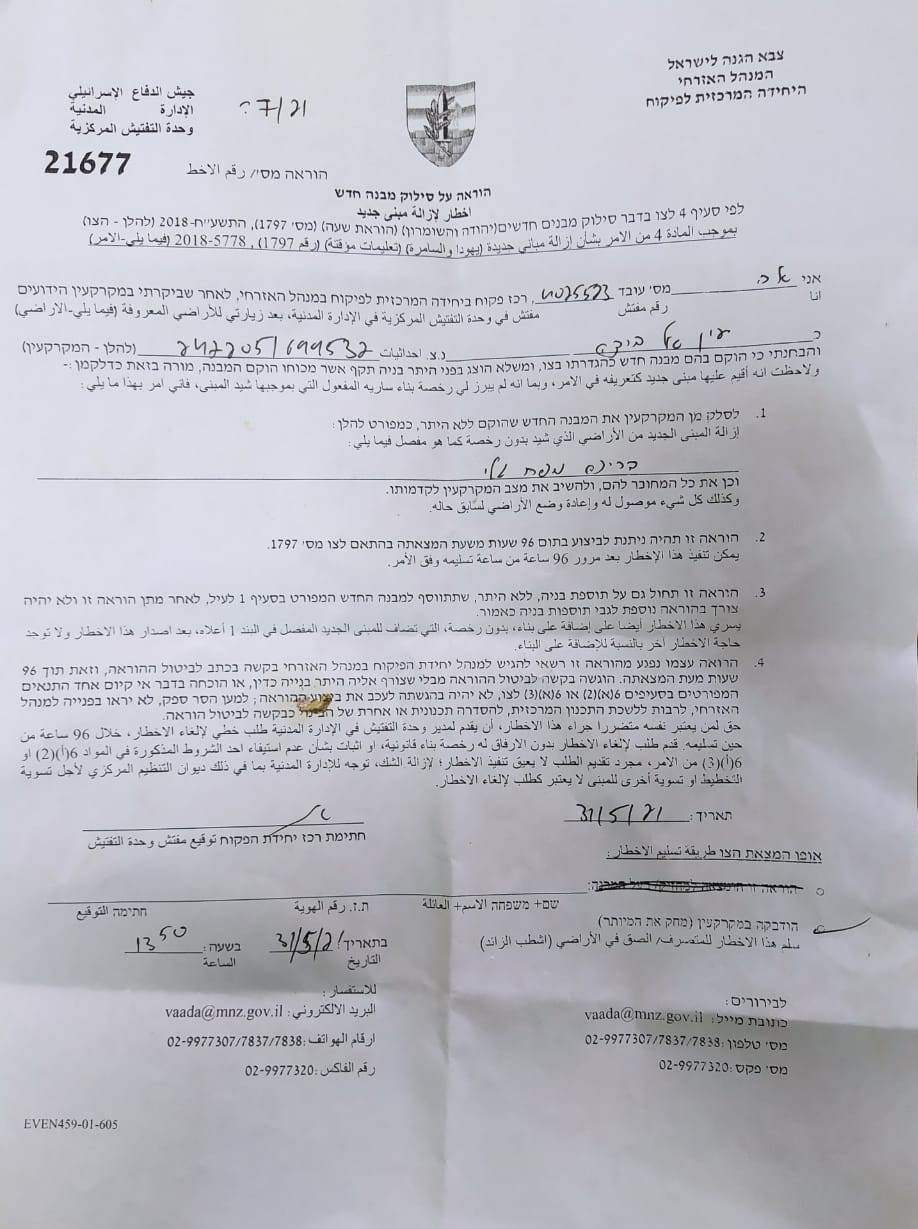Related
Two Water Pools Notified in Bardala Village / Tubas Governorate
Violation: demolition Notices for water pools.
Location: Bardala Village/ Tubas Governorate.
Date: May 31st 2021.
Perpetrators: The Israeli Civil Administration.
Victims: Citizens Samir Sawafta and Mohammed Sawafta.
Description:
Monday, May 31st 2021, The So-called construction inspector at the Israeli Civil Administration raided Bardala village at the northern Jordan Valley, and notified two pools east the village on the pretext of building without a license. The notices were issued in reference to military order (1797) which requests the removal or demolition only (96) hours after receiving the notice.
The targeted pools harvest irrigation water, built within a collective irrigation project for farmers early this with aid from the Palestinian ministry of Agriculture.
Photo 1 | Photo 2 |
The following table shows more information about the targeted pools:
owner | beneficiaries | Family members | Children | Area of the irrigated land | Storage capacity m3 | Military order number | Photo number |
Samer Sawafta | 7 | 31 | 11 | -45 dunums planted with vegetables. -20 dunums of protected agriculture | Metal pool (250 Cub) | 21677 | 1 |
Mohammed Sawafta | 9 | 51 | 17 | -20 dunums planted with grapes. -48 dunums planted with vegetables. -8 dunums of protected agriculture. | Metal pool (100 Cub) | 21676 | 2 |
total | 16 | 82 | 28 | 130 | 350 |
Source: Firsthand Field Observation – Israeli Violations Monitoring Section – Land Research Center – May 2021
Bardala village suffers from a shortage of water resources after the occupation authorities had drained the only well in the village and established two Israeli wells in the village’s lands. In return, the occupation pledged in 1974 to pump 240 cubic meters of water per hour to the village, but this quantity has been reduced to 60 Cubic meters per hour which is insufficient for the village domestic and agricultural uses.
This situation has forced farmers to search for random water openings in order to get water, and this prompted the occupation army to constantly raid the village and work to close these openings, at a time when the occupation pumps water to the neighboring settlements at a rate of 2500 cubic meters / hour at the expense of the water share for the village. Instead of increasing the water share of the village in response to the natural growth in population, the occupation reduces the water share, chases the Palestinians in the village, demolishes their wells and destroys their water lines.
By so doing, the occupation is making the life of Palestinians in the village miserable and complicated with the aim of displacing them and replacing them with Israeli settlers as has been the case in all parts of the occupied Palestine under the sight of the whole world
A glimpse on Bardala village:[1]
The village of Bardala is located 25 km from the northern side of the city of Tubas and is bordered on the north by the Green Line, on the west by Raba, on the east by Ain al-Bayda, and on the south by Kardala, Khirbet Tal al-Hima and the city of Tubas. It has a population of 1,607 people according to 2017 general census. Its total area is 18,329 dunums, of which 404 dunums are a built-up area.
The occupation has stolen 252 dunums of its lands in favor of the bypass road No. 90, and 819 in favor of the apartheid wall. An additional 2100 dunums of the village land were, also, separated behind the path of the Wall whose length on the viallge land is 8197 meters.
According to Oslo accords, the lands of Bardala village are classified as followed:
- 90%, areas classified C, i.e. under full control of the Israeli occupation, and areas B only 5%, and with areas as follows:
- Areas classified as B is only 5% (910 dunums);
- Areas classified as C is 91% (16845 dunums).
[1] GIS-LRC

This report was prepared as part of Secure Palestinian Land & Housing Rights project activities
The Contents of this document are the responsibility of LRC and do not reflect EU position



